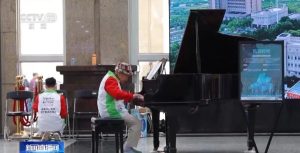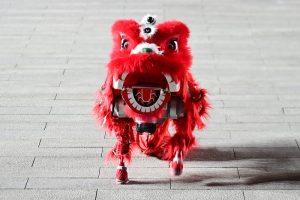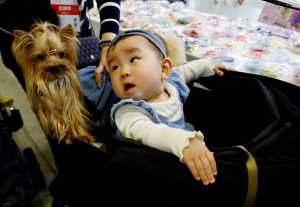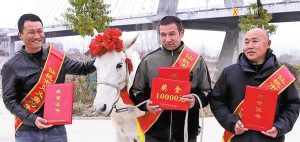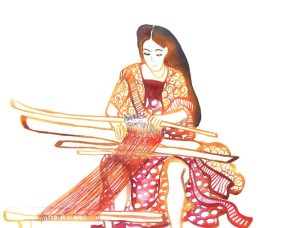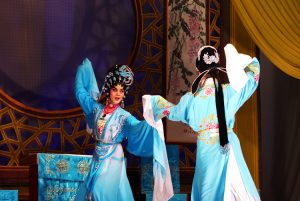Level 1
Piano Granny Plays for Hospital Patients in Guangzhou SAMPLE
Piano Granny Plays for Hospital Patients in Guangzhou
SAMPLE
89岁“钢琴奶奶”在医院弹钢琴
89岁“钢琴奶奶”在医院弹钢琴
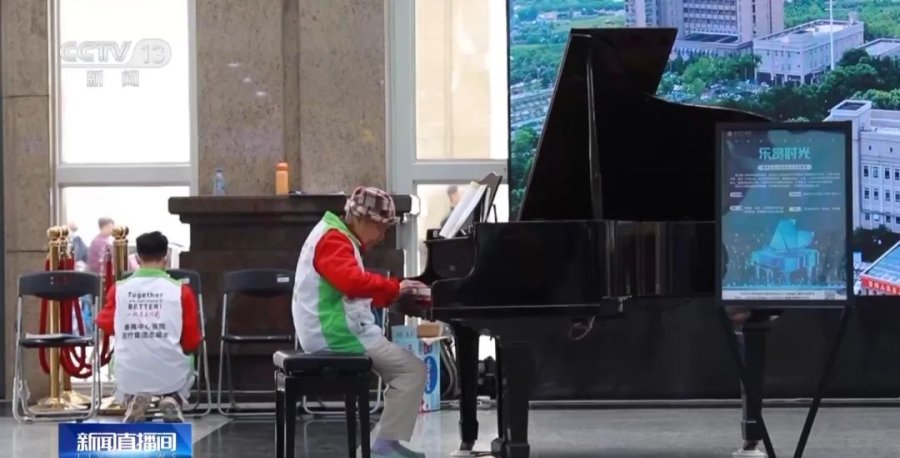
AA
AA
AA
AA
Simplified
Traditional



Pinyin



Pinyin
Keywords
钢琴 - gāngqín - piano
奶奶 - nǎinai - grandmother (paternal) / respectable term for lady of grandmother's age
医院 - yīyuàn - hospital
弹 - tán - to pluck (a string) / to play (a string instrument)
名字 - míngzi - name (of a person or thing)
喜欢 - xǐhuan - to like / to be fond of
上午 - shàngwǔ - morning
小时 - xiǎoshí - hour
那里 - nàli - there / that place
医生 - yīshēng - doctor
病人 - bìngrén - sick person / patient
看见 - kànjiàn - to see / to catch sight of
高兴 - gāoxìng - happy / glad / willing (to do sth) / in a cheerful mood
次 - cì - time (i.e. number of times) / measure word for enumerated events: time
弹琴 - tánqín - to play or strum a lute or other stringed instrument
来 - lái - to come / to arrive / to come round
听 - tīng - to listen / to hear / to obey
Grammar
Subject + Number + 岁 - Expressing the age of the subject with "Subject + Number + suì"
中国广州有一个“钢琴奶奶”,她的名字叫邬品贤(Wu Pinxian),今年89岁,她很喜欢弹钢琴。
在 + Place - Expressing to be located in or at a certain place with "zài + Place"
89岁“钢琴奶奶”在医院弹钢琴
她说,每次在医院弹琴的时候,都会有很多人来听,她也很高兴。
Place + 有 + Object - Expressing the existence of an object in a certain place with "Place + yǒu + Object" (similar to "there is" or "there are")
中国广州有一个“钢琴奶奶”,她的名字叫邬品贤(Wu Pinxian),今年89岁,她很喜欢弹钢琴。
她说,每次在医院弹琴的时候,都会有很多人来听,她也很高兴。
Measure Word - Expressing the number of sth with an object specific measure word in the form of "Number + Measure Word + Noun" (if the number is one, you can omit it and use the measure word by itself)
中国广州有一个“钢琴奶奶”,她的名字叫邬品贤(Wu Pinxian),今年89岁,她很喜欢弹钢琴。
每个星期四上午,她都会去医院弹一个多小时的钢琴。
Proper Noun / Noun / Pronoun + 的 + Noun - Expressing a possessive particle, relationship or link with "Proper Noun / Noun / Pronoun + de + Noun"
中国广州有一个“钢琴奶奶”,她的名字叫邬品贤(Wu Pinxian),今年89岁,她很喜欢弹钢琴。
Subject + 叫 + Name - Expressing sb or sth's name with "Subject + jiào + Name"
中国广州有一个“钢琴奶奶”,她的名字叫邬品贤(Wu Pinxian),今年89岁,她很喜欢弹钢琴。
Noun + 很 + Verbs of Feeling - Expressing "very…" with "Noun + hěn + Verbs of Feeling" (used to increase intensity to verbs of feeling)
中国广州有一个“钢琴奶奶”,她的名字叫邬品贤(Wu Pinxian),今年89岁,她很喜欢弹钢琴。
每星期 / 每个星期 - Expressing "every week" with "měi xīngqī / měi gè xīngqī" (both portray the same meaning and are interchangeable)
每个星期四上午,她都会去医院弹一个多小时的钢琴。
Subject + 都 + Verb / Verb Phrase - Expressing "all / every" to emphasise the quantity with "Subject + dōu + Verb / Verb Phrase" (都 emphasises the quantity or frequent occurrence)
每个星期四上午,她都会去医院弹一个多小时的钢琴。
她说,每次在医院弹琴的时候,都会有很多人来听,她也很高兴。
Subject + 会 + Verb / Adverb - Expressing that sth "will" happen or that sb "will" do sth with "Subject + huì + Verb / Adverb"
每个星期四上午,她都会去医院弹一个多小时的钢琴。
她说,每次在医院弹琴的时候,都会有很多人来听,她也很高兴。
Subject + 去 + Place - Expressing "to go" to a place with "Subject + qù + Place"
每个星期四上午,她都会去医院弹一个多小时的钢琴。
Number + 多 - Expressing a number in excess with "Number + duō"
每个星期四上午,她都会去医院弹一个多小时的钢琴。
Verb / Adverb / Phrase + 的 + Noun - Expressed to link a noun to a preceding verb or phrase with "Verb / Adverb / Phrase + de + Noun"
那里的医生和病人看见她都很高兴。
Noun 1 + 和 + Noun 2 - Expressing "and / together with / with" with "Noun 1 + hé + Noun 2"
那里的医生和病人看见她都很高兴。
Sensory Verb + 见 - Expressing that the senses have accomplished the action with "Sensory Verb + jiàn" (negative formed with 不见)
那里的医生和病人看见她都很高兴。
Subject + 都 + Adj. Phrase - Expressing a descriptive statement with emphasis that it applies to "all / both" of the subjects with "Subject + dōu + Adj. Phrase"
那里的医生和病人看见她都很高兴。
Noun / Pronoun + 很 + Adj. - Expressing "very" or to link a noun or pronoun and an adjective with "Noun / Pronoun + hěn + Adj." (sometimes the 很 is translated as "very" but often it is a link between a noun and an adjective)
那里的医生和病人看见她都很高兴。
每 + 天 / 周 / 年 / 次 - Expressing "every day / every week / every year / every time" with "měi + Time Word" (天, 周, 年 and 次 act as their own measure words)
她说,每次在医院弹琴的时候,都会有很多人来听,她也很高兴。
...的时候 /...时 - Expressing "when…" with "...de shíhou / ...shí"
她说,每次在医院弹琴的时候,都会有很多人来听,她也很高兴。
Statement 1,也 + Statement 2 - Expressing "also" to link two statements with "Statement 1,也 + Statement 2"
她说,每次在医院弹琴的时候,都会有很多人来听,她也很高兴。
Proper Nouns
广州 - Guǎngzhōu - Guangzhou (capital of Guangdong)Idioms
Ready to complete the lesson's exercises?

Complete Assignment Reading
Live dictionary
 Stroke
Stroke Write
Write














